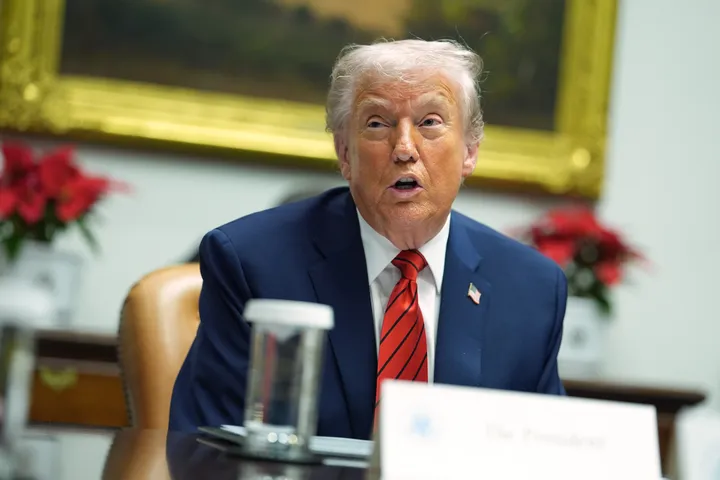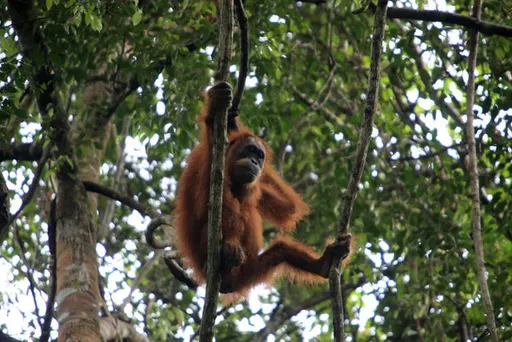Dozens of people have been killed since late August as clashes between local Arab tribesmen and terror group PKK/YPG-led armed groups in eastern and northern Syria have intensified.
The scale of violence has been unprecedented and symbolic of long-raised concerns of Türkiye that the security situation in the region has deteriorated since the PKK/YPG terrorist group took control of it.
The YPG, the Syrian wing of the PKK, which is recognised as a terror group by the US, Türkiye and NATO, has for years been a source of tensions across Türkish borders, occupying a large part of northeastern Syria with Washington’s support.
Most recently, the Arab tribes living in eastern Syria’s oil-rich Deir Ezzor province for generations have felt increasingly threatened by the YPG/PKK’s elusive political and ideological agenda, which is based on a harsh interpretation of Marxist-Leninist thought. The US’s Syria policy has conveniently accommodated the terror group despite its communist roots.
The armed units of YPG/PKK have been installed in Arab-majority Deir Ezzor province under the banner of SDF, which continues to receive the US military backing despite Türkiye’s fierce opposition. The recent clashes have reportedly killed dozens of people.
Tensions flared after the SDF detained Ahmad al Khubail, also known as Abu Kahwla, the leader of the local Arab al Bukair tribe. People who have been keeping track of the situation on the ground say Khubail was heading the so-called Deir Ezzor Military Council, a regional wing of the SDF, from which he was removed.
Deir Ezzor’s violent clashes have had spillover effects on other parts of the war-torn country. Manbij, a strategic northwestern town of the Aleppo province with a significant Arab population under the PKK/YPG occupation, also came in the grip of violence.
Members of various Arab tribes with cultural ties with Deir Ezzor have also fought the PKK/YPG terror groups across areas between Manbij and Jarablus, a border town under the control of pro-Turkish opposition groups in northwestern Syria. The YPG attacks in this region killed at least six people last week, including children, according to media reports.
“Let’s not forget that those Arab tribes are the people of this area. It’s their cities, towns and homes. What’s SDF doing here?” says Omar Alhariri, a Daraa-based Syrian journalist, referring to the clashes between Arab tribes and the US-backed YPG/PKK-led group in Deir Ezzor areas.
“When you use force to control an area, impose laws, appoint foreign officials, and suppress the people of the region, this is the occupation itself. Therefore it is expected for the people of the region to fight to regain their dignity against this occupation,” Alhariri tells TRT World.
Turkish President Recep Tayyip Erdogan reacted to the ongoing military conflict on September 5, saying that not the terror group but "Arab tribes are the real owners of those places”, describing their fight against the YPG/PKK as an honourable struggle.
Türkiye has been battling with PKK terrorists for decades. The terror group has launched many attacks on Turkish soil, killing tens of thousands of Turkish citizens. To secure the country and its borders, Ankara has launched many cross-border operations, eliminating the PKK/YPG units from a vast swathe of countryside in northern Syria.
Persistent resentments
Deir Ezzor’s Arab tribes like the Ogeidat and the Baggara have a history of opposing the PKK/YPG’s iron-fisted rule. They have frequently protested against the control of the terror group, according to Rena Netjes, a Dutch researcher and journalist, who has received online threats for her criticism against the PKK/YPG.
“These conflicts are not new. From time to time, there have been conflicts between the PKK/YPG-led SDF, which has been active in the region since 2015, and Arab tribes,” says Ulas Pehlivan, a Turkish military analyst and a former officer, who involved in Turkish ground operations in northern Syria in the past.
“In the past, various armed conflicts have occurred as a result of the forced recruitment of Arab tribal members and their children by the YPG and the killing of some tribal leaders through YPG assassinations,” Pehlivan tells TRT World. There are also other conflict areas in relation to the border trade, taxing and sharing of other financial resources, according to the military analyst.
Several rights groups have previously documented how the PKK/YPG leadership has committed a wide range of human rights abuses in northern Syria. The group has been involved in assassinations and detentions of not only Arab tribal leaders but also Kurdish dissidents, according to local sources.
The Turkish foreign ministry is keeping a close tab on the ongoing tensions “with concern”. The ministry says it’s “the new manifestation of PKK’s attempts to dominate Syrians by applying violence and pressure on them and violating their basic human rights.”
While Türkiye has repeatedly warned the US not to ally with a terror outfit like the PKK/YPG, Washington has turned a blind eye to ties between the PKK and YPG and instead armed the terror group in a bid to fight another terror group, Daesh.
Now Ankara believes that continuing armed clashes between the PKK/YPG-led SDF and Arab tribes should serve as a wake-up call for the Western alliance to recognise “the true colours of PKK”, which hides “its aims and intentions under the pretext of fighting against Daesh”.
Recent reports however suggest that Ethan Goldrich, US Deputy Assistant Secretary of State for Near Eastern Affairs and Major General Joel Vowell, commander of the US-led anti-Daesh coalition, organised meetings between the PKK/YPG leadership and Arab tribal leaders to de-escalate tensions, according to American embassy in Syria.
While the US has sought to mediate and keep the SDF components together through meetings and financial support, “this heterogeneous structure is not sustainable” especially in Arab-majority areas like Deir Ezzor, Manbij and Raqqa regions, according to Pehlivan.
Connected clashes
This time around, the US mediation might not work well because Arab tribal anger has spread from eastern Syria to northwestern parts of the country so quickly, signalling anti-PKK/YPG resentment might have reached unbearable proportions.
PKK/YPG-Arab tribes clashes reported from Jarablus and Manbij are “related” to the ongoing fighting in Deir Ezzor because most of those fighters in the Manbij-Jarablus area are “originally from Deir Ezzor and were displaced to Idlib and Aleppo after SDF and Daesh took control of their towns,” says Alhariri.
The speed of clashes spreading from an eastern Syrian province to northwestern areas also shows how extensive displacement and ethnic clashes have damaged the very social fabric of the Middle Eastern country.
“They [Arab tribal elements] waited for years for such an opportunity to start their way home. For sure hundreds of supporters joined them, but the tribes are leading their fighting,” says the Daraa-based Syrian journalist Omar Alhariri.
Pehlivan observes that the cultural, economic and social impositions of the SDF cause greater reactions in regions where Arabs have a demographic majority such as Manbij, Raqqa and Deir Ezzor, making anti-PKK/YPG sentiments spread easily.
Alhariri believes that ongoing clashes send a strong message to the YPG/PKK-led SDF and its enabler, the US. “The SDF and US need to understand that it’s not their area, and they can’t lead the people using fire,” he says.
“What happened during the last few days was a message to everyone about how the future of Syria will look like if they keep ignoring the danger of the SDF as an occupying force.”
























